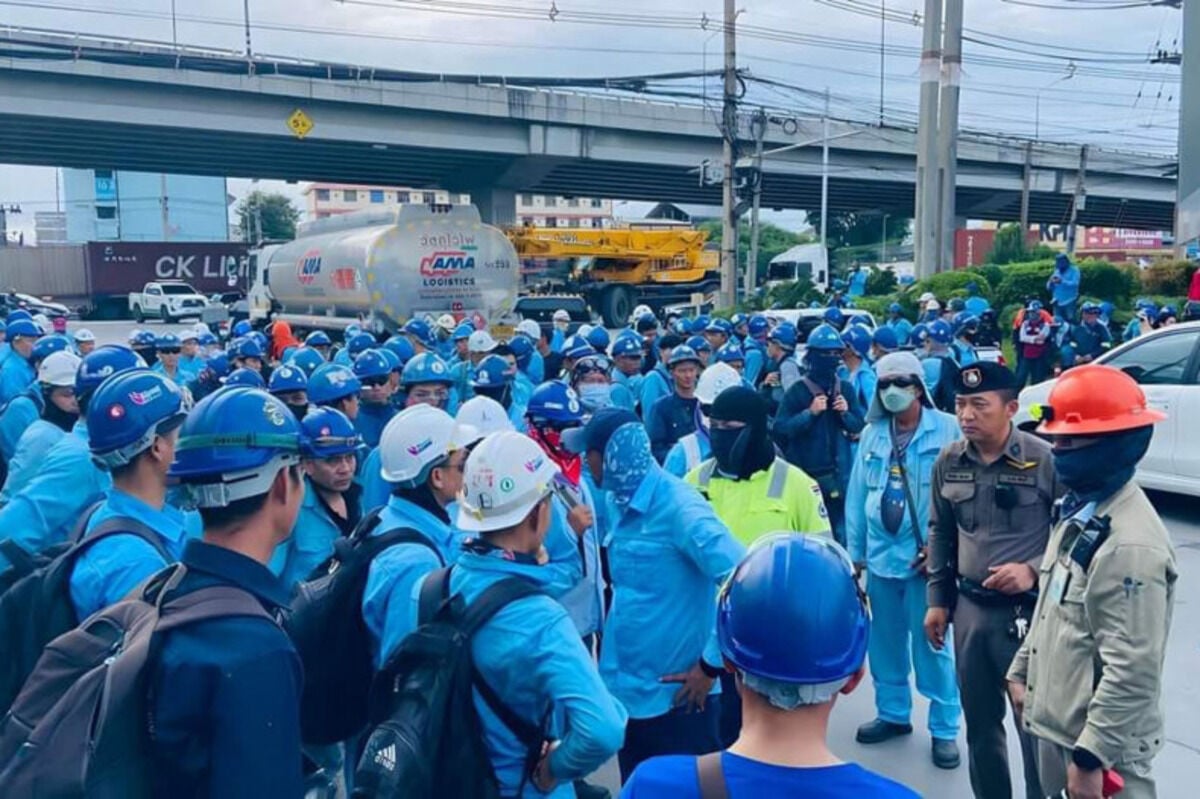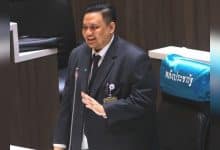Thai Oil workers protest unpaid wages, ministry demands resolution

Hundreds of workers have been protesting outside Thai Oil’s refinery in Chon Buri since Wednesday, July 24 due to unpaid wages. The Labour Ministry has stepped in, urging relevant parties to resolve the issue promptly.
Employees of Sinopec Engineering Group (Thailand) Co Ltd, a subcontractor for Thai Oil, initiated the protest after not receiving their salaries since May. The protest has drawn the attention of several agencies, including the Department of Provincial Administration in Sri Racha district, Laem Chabang Police Station, the Labour Protection and Welfare Office, and the Provincial Social Security Office.
Labour Ministry spokesperson Phumiphat Mueanchan stated that Sinopec owes 1,000 employees a total of 134 million baht for unpaid salaries from May and June. Sinopec’s payment issues stem from not receiving payments from its multinational unincorporated joint venture with Petrofac, Saipem, and Samsung (UJV).
Sinopec was subcontracted by the UJV to work on Thai Oil’s Clean Fuel Project (CFP).
Chon Buri’s Labour Protection and Welfare Office has demanded that Sinopec settle its outstanding payments to employees. Sinopec has agreed to make a partial payment of 40 million baht on August 20.
Phumiphat also disclosed that the UJV owes payments to several other subcontractors, impacting around 8,000 employees.
Over 500 employees participated in the protest on Wednesday.
Department of Labour Protection and Welfare Director-General Sopha Kiatniracha explained that Thai Oil hired multiple contractors for its CFP project, with UJV being one of the main contractors. Sinopec is a significant subcontractor under UJV.
Thai Oil has paid its main contractors on time, indicating that the payment delay issues lie with UJV’s failure to pay its subcontractors promptly.
The situation remains under scrutiny as the involved parties work towards a resolution, reported Bangkok Post.
In related news, Nation Group has clarified that its recent salary suspension affects a mere 10% of its staff, primarily targeting the management team.
Latest Thailand News
Follow The Thaiger on Google News:


























